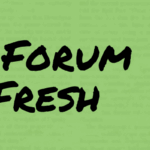Last year, thanks to the generous support of Archstone Foundation CFPA convened state partners and older adults from around the state to understand what keeps older Californians from accessing the food they need and what changes are needed to ensure food and dignity in aging. We were inspired by the range of solutions discussed and their alignment with the state’s plan to expand access to CalFresh for elderly individuals and people with disabilities. Feedback from the convening also helped inform SB 285 (Wiener), legislation co-sponsored by CFPA, the San Francisco-Marin Food Bank, AARP California, and the California Association of Food Banks that will help increase access to our most impactful, but underutilized federal food assistance program. Click here to support SB 285 or read on for more information about the bill and for an update on the state’s plan for CalFresh expansion. link.
SB 285 (Wiener) ensures all low-income Californians have efficient and equitable access to CalFresh
CalFresh has the greatest poverty reduction impact among social service programs. However, access to the program varies significantly across the state and among different demographic groups, leading to major inequities. Enrollment processes are often burdensome, especially for elderly individuals, disabled persons, non-English speakers, and the working poor. While California has been slowly and steadily improving, we are still among the lowest-performing states at connecting struggling households to federal food assistance. SB 285 would help reverse this by achieving the following:
Click here to support SB 285. link
Update on the state’s plans for CalFresh expansion and opportunities for action
On June 1, 2019 hundreds of thousands of low-income elderly individuals and people with disabilities who receive Supplemental Security Income (SSI) will become newly eligible for CalFresh. As the state plans for the statewide rollout, CFPA and other stakeholders continue to meet with the state Department of Social Services (CDSS) to advocate for an efficient, effective strategy that maximizes the uptake of CalFresh among the newly eligible.
The state should be applauded for their efforts to step up outreach efforts, leverage multiple communication channels, and for partnering with other service providers to plan and execute the rollout. In the near future, the state will be finalizing a new data sharing agreement with the Social Security Administration that will help inform a planned statewide mailing to newly eligible households. In addition, the California Department of Rehabilitation and the California Department of Aging will soon become contracted CalFresh outreach partners and application assistors. Together, these agencies will be training a new network of partners on how to effectively conduct outreach phone calls, mailings, and to help enroll the people they serve onto CalFresh. Counties are also actively working on their individual plans for the expansion. Now is the time to reach out to your own county social service office, Area Agency on Aging, local Independent Living Center, and your regional Social Security office to find out what they have planned for the expansion and how you can support their efforts.
Click here to stay up to date on the state’s plans for the expansion. link
The state is also working to boost CalFresh benefits for elderly and disabled households through the Standard Medical Deduction, but more progress is needed
In January, the CDSS submitted a report to the USDA Food and Nutrition Service on the number of eligible households claiming the Standard Medical Deduction (SMD) in the first year of the demonstration project implementation (October 1, 2017 – September 30, 2018). The SMD enables households with at least one elderly and/or disabled member to increase their monthly CalFresh benefits if they can prove that they have monthly medical expenses in excess of $35. Although advocates and stakeholders anticipated an increase in the uptake rate, the average number of CalFresh households claiming the exemption fell slightly during the first year of the demonstration project. CDSS attributes the decrease to an overall decrease in CalFresh households with at least one elderly and/or disabled member given that the total number of CalFresh households decreased by 12% over the same time period. That said, the overall utilization rate remains around 16% and significant progress is needed to help a greater number of eligible households claim the deduction and boost their benefit allotments.
The state will be rolling out comprehensive refresher trainings for counties on how to increase the uptake of the Standard Medical Deduction. CFPA continues to promote the use of the SMD at CalFresh policy meetings and widely disseminate educational materials among CalFresh partners, CalFresh county administrators, and other stakeholders working to serve elderly and disabled persons.
Click here for resources to increase the SMD in your county. link
Questions? Contact Jared Call at 213.482.8200 ext 201, or visit https://nourishca.org/SB285/




